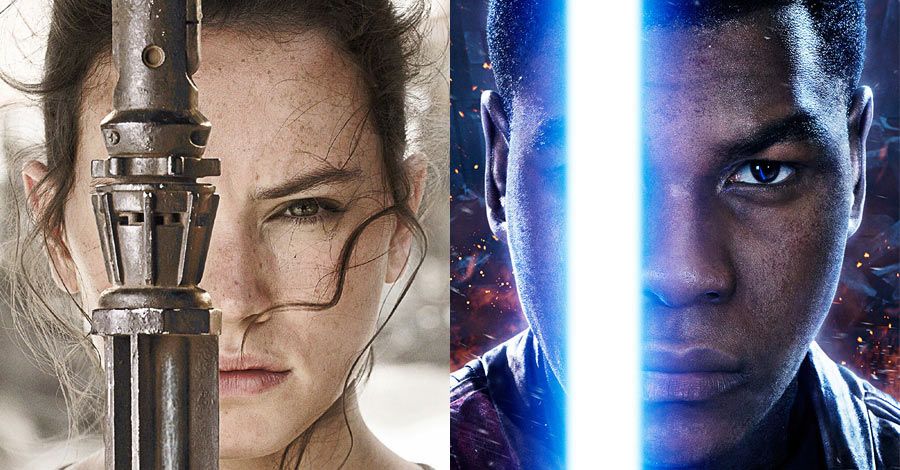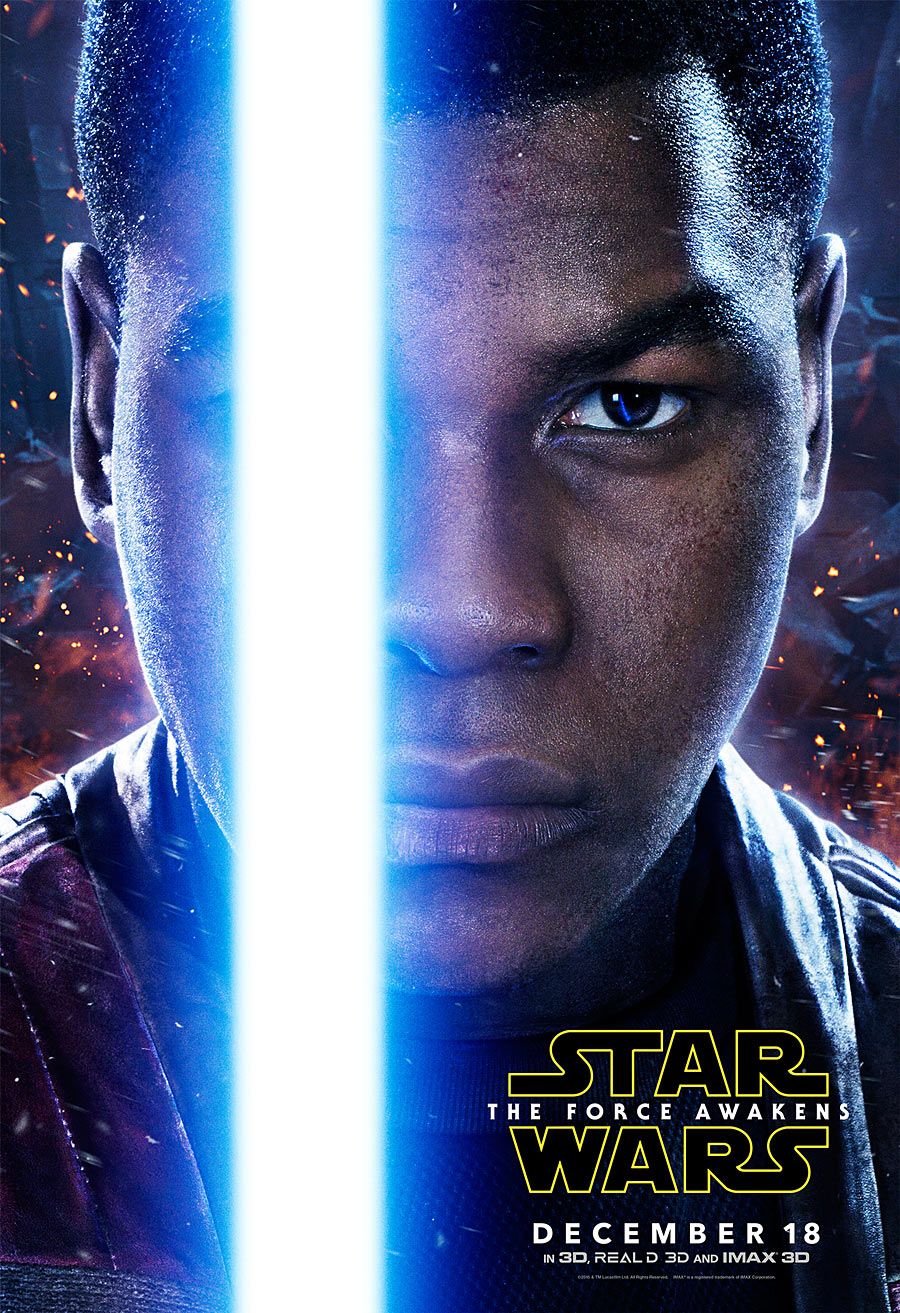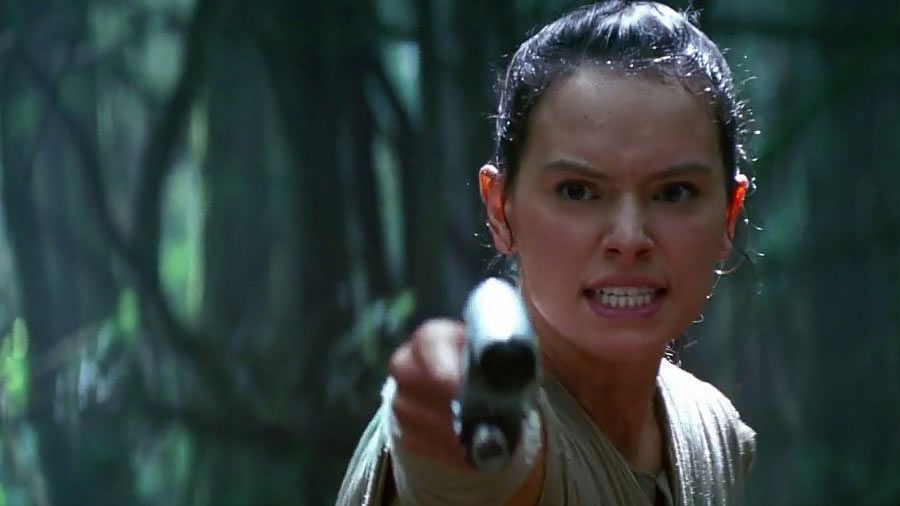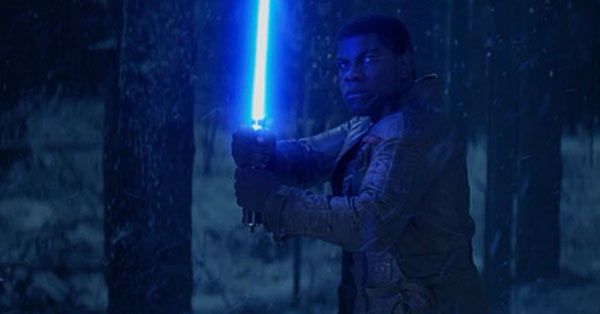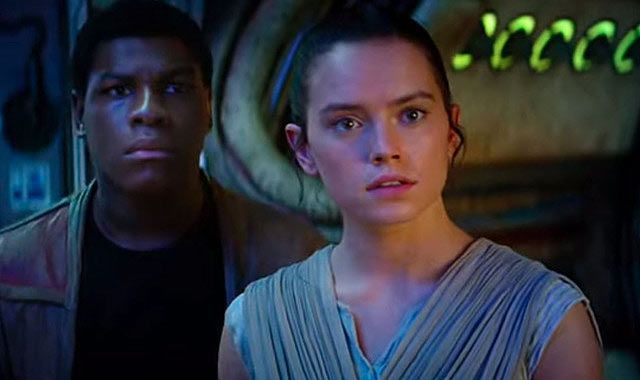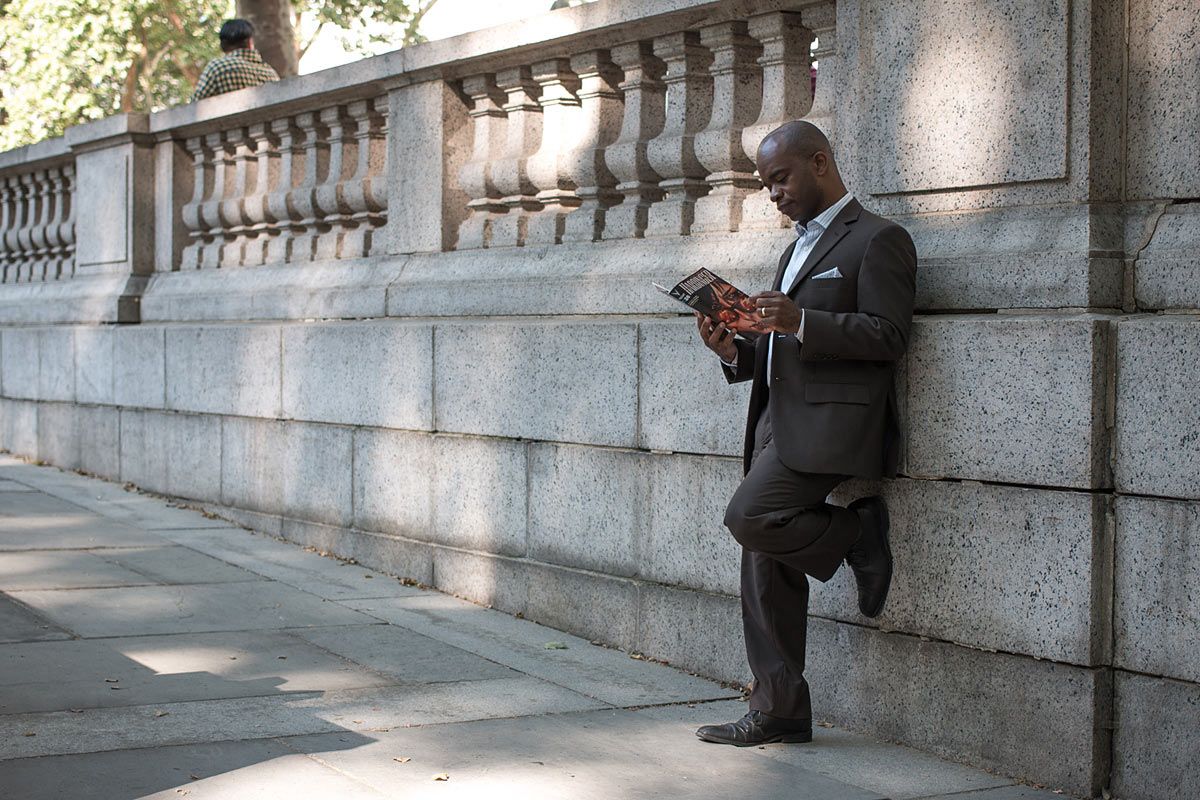My mother introduced me to The Force when I was a child, by taking me to see "Star Wars."
I had not yet encountered racial prejudice at that age, and "Star Wars" was not yet the global phenomenon it would become, so I had no reason to have a problem with The Problem.
An absence of Black heroes in the film.
I wonder if my mother saw The Problem, as well, but kept it to herself, so as to not ruin the experience for me.
Three years later, my mother took me to see "The Empire Strikes Back," and we got Lando Calrissian, the charming smuggler played by actor Billy Dee Williams.
Lando was handsome, and he was there, but he was no hero. He was the guy who once owned the ship we, the audience, identified with the White smuggler, and he sold out our heroes to Vader.
I never saw "Return of the Jedi" in the theaters, for various reasons, so my mother and I never got to compare notes or share feelings on the end of the first "Star Wars" trilogy.
RELATED: 10 "Force Awakens" Questions Every "Star Wars" Fan Is Asking
On December 18, "Star Wars: The Force Awakens" premiered nationwide in U.S. theaters, and now a variety of people have asked me the natural question: "What did you think about Finn?"
Portrayed by actor John Boyega, the character of Finn may be the most impactful, neutered, subversive Black male character in popular global fiction.
But I want to talk about Rey, first.
The female scavenger of the film played by actress Daisy Ridley, Rey speaks in part to the heart and soul of the film and the entire franchise. We meet her living on a planet of harsh climate, social hostility, and competitiveness. Getting the last drops of water out of a metal canteen, and banging the sides of it to get a few more drops.
She is diminished by other denizens of the planet because she is poor, because she is in need, and quite possibly because she is a young woman. Held down by the hope that her family will return, Rey's shoulders carry a burden much easier to connect with and feel for, than that of the entire Resistance.
Planets are destroyed, civilizations laid to waste, evil rules the galaxy, but all that pales in comparison to the trial of Rey. With the odds stacked against her, Rey survives.
She needs money, but will not sell her newfound droid companion for a huge sum. She is targeted for murder, and defends herself well and without hesitation. Rey does not wait for the offered hand to take her to safety. She extends the hand of salvation to another.
She takes a ship which has seen one too many space fights of legend, and navigates it though caverns with the same survival instinct utilized to descend into the bowels of ship carcasses. In the supercompressed time-space of blockbuster films, Rey is exposed to the expanse of the universe beyond her world, tortured, experiences psychic-emotional disillusionment upon contact with her legacy, opens up a guarded heart, and acknowledges her true potential.
Rey is a navigator, and a savior, of sorts. She saves a droid. She also saves Finn, a lot, and that's where things get tricky.
Finn, the ex-Stormtrooper who chooses to leave his job, leave war and run, is neither a protagonist nor a savior of the film. He's not connected to The Force, and he doesn't understand what it is. He doesn't want to be a bad guy, but he doesn't want to be a good guy, either. He was taken from his family, doesn't even know his birth name, and isn't even wearing his own clothes.
On the surface, Finn is a slave-like character without a lot of enviable character meat sticking to his bones. But his emotions are real. Fear of war and evil are real.
Trying to get away from the last moment to propel yourself into the next moment, with the hope of landing someplace where you can rest, is real.
Having the capacity to make jokes in the face of overwhelming odds, bonding with someone your age, and finding a kinship with one person after having been part of a clique with no depth of cause is real.
Finn's belief that Rey needs his help is humanely automatic, outdated, and comical. We like him, and while we're liking him, the idea of Finn, his presence, the indelible impression he leaves on us after we leave the theater, becomes a viral thing in the global consciousness.
Yes, Finn did not manage to hold his own against Kylo Ren, but he held the lightsaber, the symbolic instrument of power and wisdom.
He had no chance against the military might of The First Order, but when he saw Rey being taken away, he ran toward the danger he'd been trying to avoid.
He didn't even get to kiss Rey.
Romance tends to be at the center of American hero films, and if both Rey and Finn were Caucasian, I bet there would have been some lip lock at the end of the film before Rey became the Skywalker/Solo analogue of the story, on the flight to see her Yoda.
But Finn was not even conscious at the end of the film.
Having survived the first two stages of personal transformation into the hero he will become, Finn was serenely asleep.
It would have been nice to see a young Black male Jedi, one with more personality and likelihood for survival than Mace Windu of the "Star Wars" prequel trilogy. It would have been something to see a Black man and White woman kiss in a galaxy far, far away. The absence of those things makes Finn less potent as a character in the story, but he has import and impact.
RELATED: John Boyega Just Wants to Be a "Star Wars" Fan on Opening Day
He's the Black man who survived, the one who left evil and survived, the one who will return and thrive, despite all of the haters who don't want him there.
A Black man who is part of a multi-billion dollar franchise, and his journey has just begun. He's going to become more important, powerful, and wiser. Finn is the idea that worms its way through various licensing products, the idea that has access to every corner of greed media.
Finn cannot be stopped.
His ascension is just as symbolic as that of Rey, when she climbed the mountain usually reserved for men in the hundreds upon hundreds of stories utilizing the Campbellian myth structure.
They may not have kissed, but Rey and Finn are a couple. It doesn't matter which one saved which, or how many times. Separately, they are symbols, and together, they are a super symbol.
They are The Solution.
The mythology of "Star Wars" looks like a future, but it really is the past. The post-racial distant past we have devolved from, and the beacon for the future many of us want.
I believe franchise creator George Lucas meant for that to be the case with the first two trilogies, and that "The Force Awakens" director J.J. Abrams plans to continue with that intent for the duration of this trilogy.
Whether or not either Lucas or Abrams planned for that effect, it was still achieved, so when I take my mother to see "Star Wars: The Force Awakens," we'll see the lightsaber-wielding woman and the heroic Black man, and appreciate the evolution of myth.
Joseph Phillip Illidge is a public speaker on the subjects of race, comics and the corporate politics of diversity. In addition to his coverage by The New York Times, CNN Money, the BBC and Publishers Weekly, Joseph has been a speaker at John Jay College of Criminal Justice, Digital Book World's forum, Digitize Your Career: Marketing and Editing 2.0, Skidmore College, The School of Visual Arts, Purdue University, on the panel "Diversity in Comics: Race, Ethnicity, Gender and Sexual Orientation in American Comic Books" and at the Soho Gallery for Digital Art in New York City.
Joseph is the Head Writer for Verge Entertainment. Verge has developed an extensive library of intellectual properties for live-action and animated television and film, video games, graphic novels and web-based entertainment.
His graphic novel project, "The Ren," about the romance between a young musician from the South and a Harlem-born dancer in 1925, set against the backdrop of a crime war, will be published by First Second Books, a division of Macmillan.
Joseph's newest comic book project is the upcoming Scout Comics miniseries "Solarman," a revamp of a teenage superhero originally written by Stan Lee.

